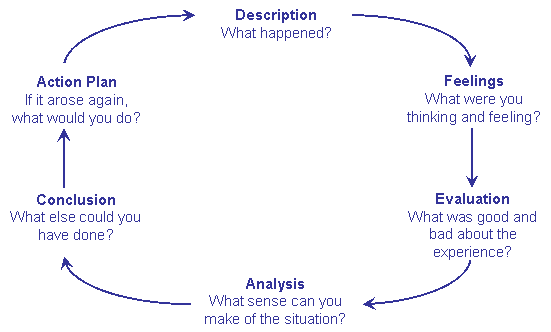
Reflective practice occurs when you explore an experience and identify what happened, and what your role in the experience was – including your behaviour and thinking, and related emotions. This allows you to look at changes to your approach for similar future events. If reflective practice is performed comprehensively and honestly, it will inevitably lead to improved performances.
Other authors have described it as follows:


Gibbs 1988
This is one example of different models of reflection. For other examples of models for reflective practice see: Models of reflection
This guide has been modified from the La Trobe University Reflective Practice in Health Sciences LibGuide with permission.